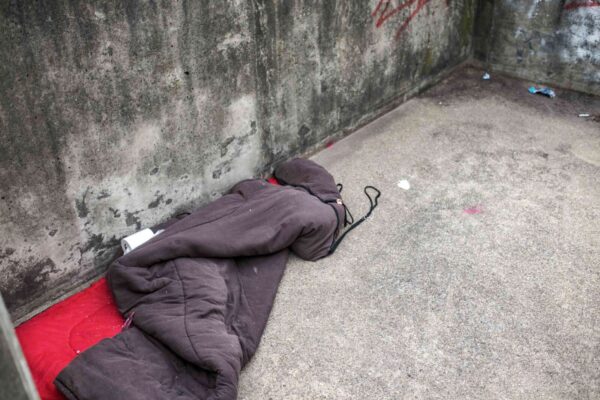
Local nonprofits and the Arlington County government have received $3 million in federal funding to address homelessness.
Nearly $200,000 will go to two new programs from the organizations Doorways and PathForward, formerly A-SPAN. The rest — save for about $81,000 for the county — will support existing programs provided by Bridges to Independence, Doorways, New Hope Housing and PathForward.
“This HUD funding helps ensure survivors of intimate partner violence have access to housing and additional pathways out of shelter, so that they can find healing, harbor, and hope for a brighter future,” Doorways President and CEO Diana Ortiz told ARLnow in a statement.
To date this year, Arlington has received $4.2 million from the U.S. Department of Housing and Urban Development to combat homelessness.
“HUD funding is a vital part of Arlington’s efforts to prevent and end homelessness,” said Arlington County’s Department of Human Services Director Anita Friedman in a statement.
“This announcement confirms that our strategic planning, policy development, and service delivery are effective and that we are changing lives for individuals and families who are experiencing homelessness or are at risk of becoming homeless,” she continued.
The county delivers these services in a partnership with local nonprofits called the Arlington County Continuum of Care (CoC). For more than a decade, the CoC has worked to improve the county’s response to homelessness by focusing on providing permanent housing, working with 1,070 people in 2022, per the county.
Nonprofits receiving this money will use it in one of two ways. The first, called “rapid rehousing,” places people living on the street or in an emergency shelter in existing, empty affordable apartment units. The second, called “permanent supportive housing,” combines housing with services such as health care and employment help.
The funding breaks down as follows:
- Doorways: $127,398 for a new rapid rehousing program
- PathForward: $1.85 million for four existing programs and $68,116 for a new permanent supportive housing program
- New Hope Housing: $586,269 for three existing programs
- Bridges to Independence: $289,419 for an existing rapid rehousing program
“HUD grant funding supports a broad array of interventions designed to assist individuals and families experiencing homelessness, particularly those living in places not meant for habitation, located in sheltering programs, or at imminent risk of becoming homeless,” per a county press release. “Because grants are competitive, localities must demonstrate need as well as an ability to address those needs.”
Arlington has demonstrated that ability in the past, when, in 2015, it functionally ended homelessness for veterans, according to a presentation on the county’s efforts.
That does not mean Arlington literally eradicated homelessness for former service members, however.
Rather, it means that the number of actively homeless veterans is less than or equal to the average monthly rate at which individuals and families find and move into stable housing, per the presentation. This is known as “functional zero.”
Arlington aims to reach functional zero for all populations experiencing homelessness by 2026, which would mean seven or fewer single adults and three or fewer youth and families with children actively experiencing homelessness at one time.
To reach this goal, Arlington is partnering with Community Solutions, which is a nonprofit dedicated to ending homelessness, and updating its strategic plan. As part of that process, the county held listening sessions earlier this year to discuss how homelessness affects specific population groups and hear solutions from the community.
In the presentation, Community Solutions representative Elise Topazian said Arlington is on the right track. Over the last 12 years, the Continuum of Care reduced overall homelessness by 66%, including a 52% reduction in sheltered and 90% reduction in unsheltered homelessness.
“Arlington is on the brink [of] ending chronic homelessness,” Topazian said.

